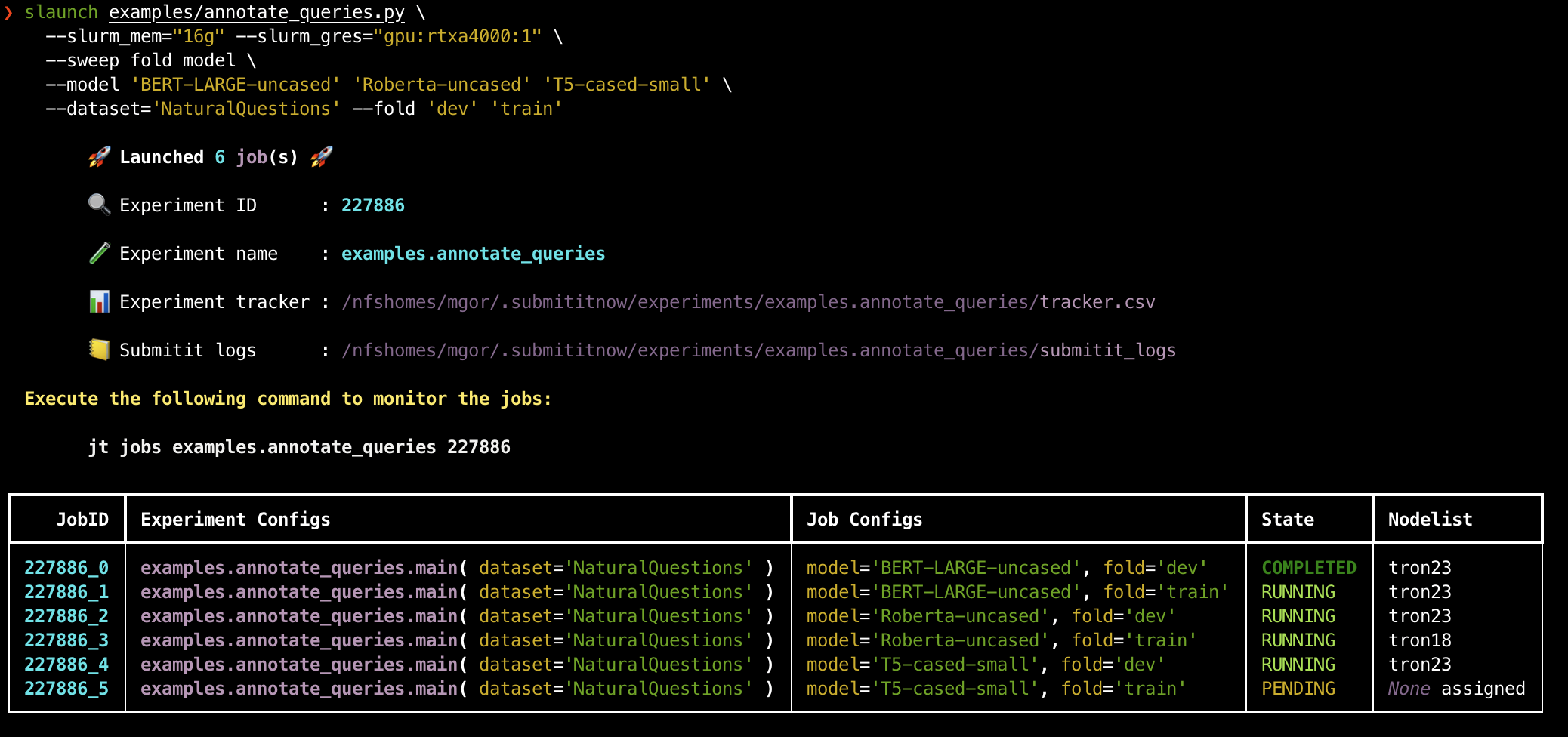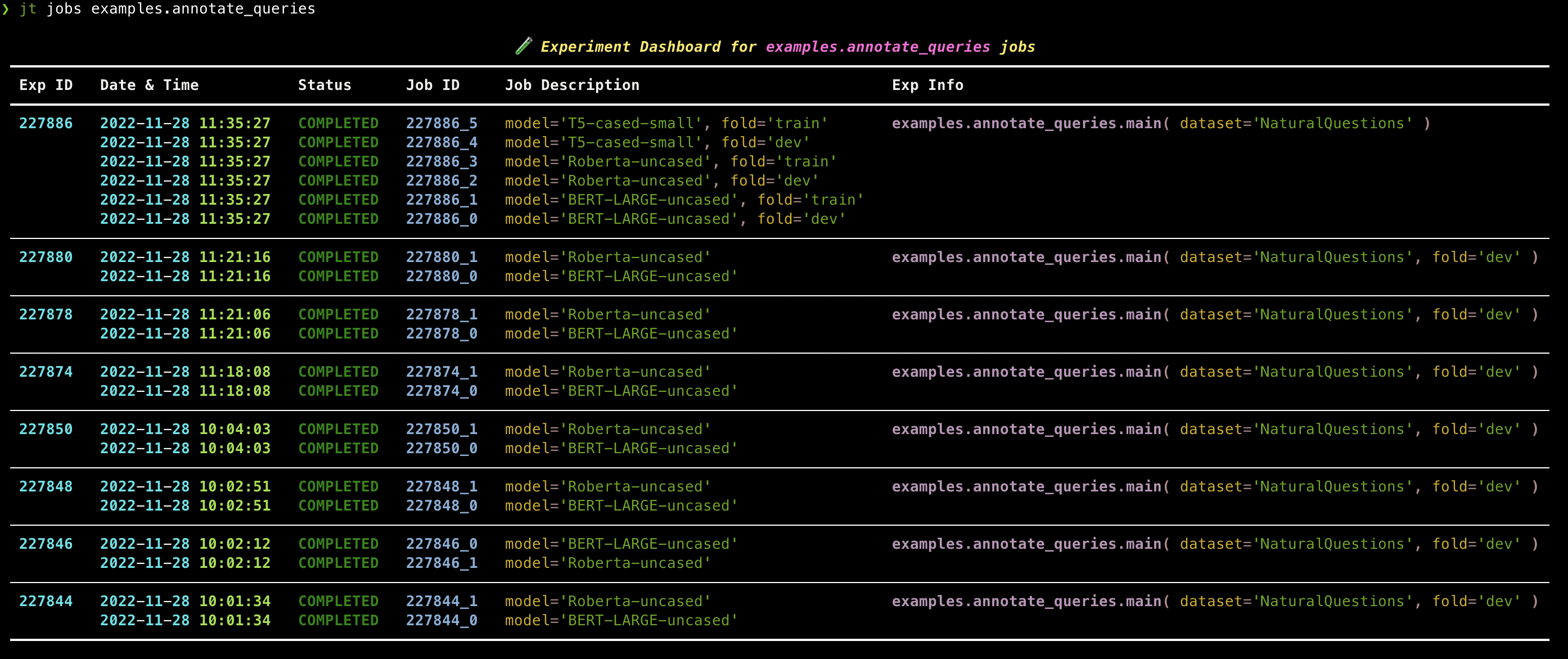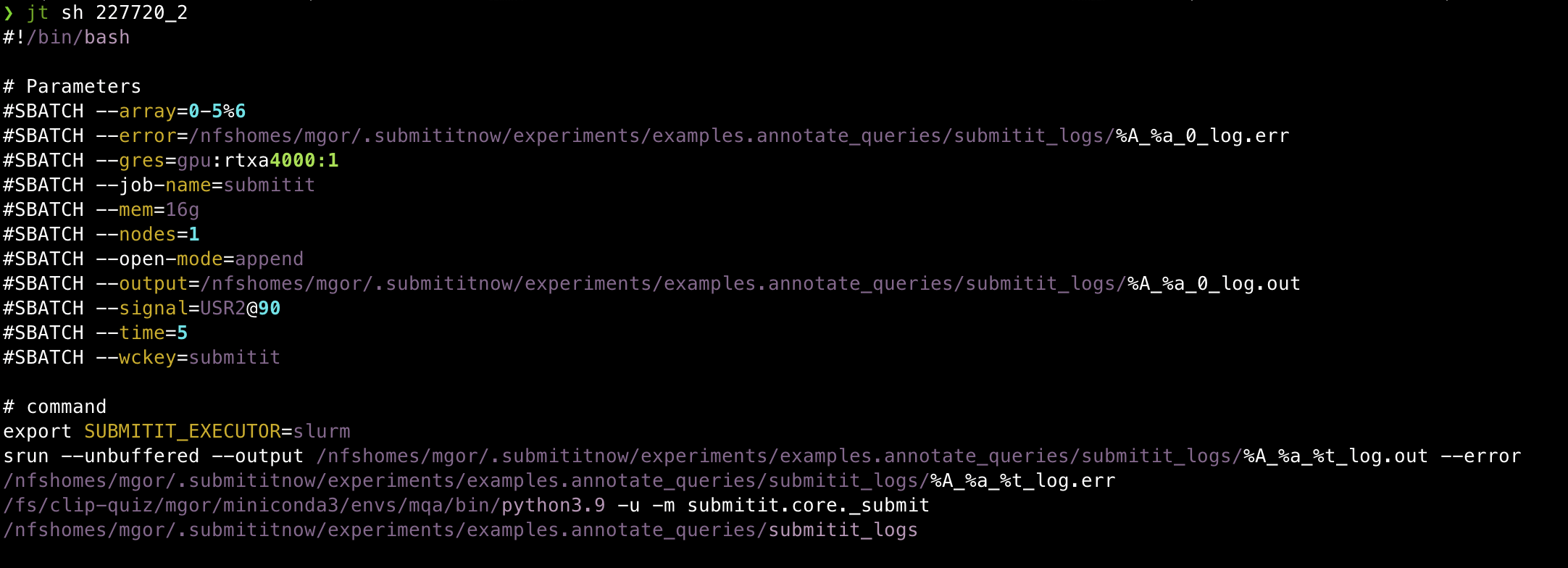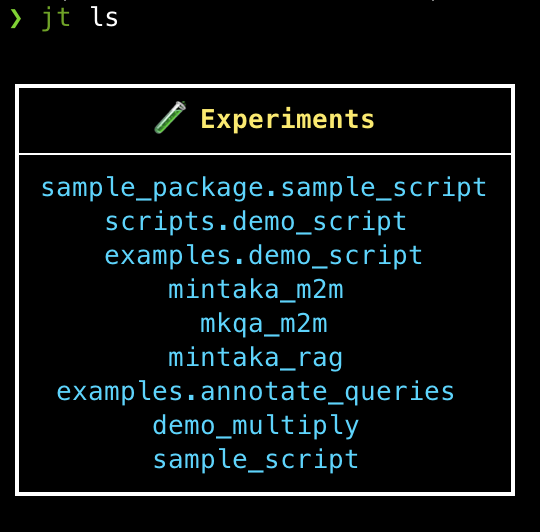A makeshift toolkit, built on top of submitit, to launch SLURM jobs over a range of hyperparameters from the command line. It is designed to be used with existing Python scripts and interactively monitor their status.
submititnow provides two command-line tools:
slaunchto launch a Python script as SLURM job(s).jt(job-tracker) to interactively monitor the jobs.
It also provides an abstracted experiment_lib.Experiment API to create, launch and monitor an experiment, or a group of job(s), from Python scripts with customized parameter-sweeping configurations, while being able to track them with jt.
Let's say you have a Python script examples/annotate_queries.py which can be run using the following command:
python examples/annotate_queries.py --model='BERT-LARGE-uncased' \
--dataset='NaturalQuestions' --fold='dev'You can launch a job that runs this script over a SLURM cluster using the following:
slaunch examples/annotate_queries.py \
--mem="16g" --gres="gpu:rtxa4000:1" \
--model='BERT-LARGE-uncased' --dataset='NaturalQuestions' --fold='dev'You can put all the slurm params in a config file and pass it to slaunch using --slurm_config flag. For example, the above command can be written as:
slaunch examples/annotate_queries.py \
--config="examples/configs/gpu.json" \
--model='BERT-LARGE-uncased' --dataset='NaturalQuestions' --fold='dev'slaunch examples/annotate_queries.py \
--config="examples/configs/gpu.json" \
--sweep fold model \
--model 'BERT-LARGE-uncased' 'Roberta-uncased' 'T5-cased-small' \
--dataset='NaturalQuestions' --fold 'dev' 'train'This will launch a total of 6 jobs with the following configuration:
The target Python script must have the following format:
import argparse
# User defined functions and classes
def main(args: argparse.Namespace):
# Code goes here
pass
def add_arguments(parser = None) -> argparse.ArgumentParser:
parser = parser or argparse.ArgumentParser()
# Return the parser after populating it with arguments.
return parser
if __name__ == '__main__':
parser = add_arguments()
main(parser.parse_args())As instructed in the above screenshot of the Launch response, user can utilize the jt (short for job-tracker) command to monitor the job progress.
Executing jt jobs examples.annotate_queries 227720 will give the following response:
In fact, user can also lookup all examples.annotate_queries jobs simply by removing [EXP_ID] from the previous command:
jt jobs examples.annotate_queriesLooking up stderr and stdout of a Job
Executing jt out 227720_2 reveals the stdout output of the corresponding Job:
 Similarly,
Similarly, jt err 227720_2 reveals the stderr logs.
Looking up SBATCH script for a Job
The submitit tool internally creates an SBATCH shell script per experiment to launch the jobs on a SLURM cluster. This command outputs this submission.sh file for inspection.
Executing jt sh 227720_2 reveals the following:
Finally, user can use jt ls to simply list the experiments maintained by the submititnow tool.
The experiment names output by this command can then be passed into the jt jobs command.
Python 3.8+ is required.
pip install -U git+https://github.com/maharshi95/submititnow.gitSometimes the slaunch command-line tool is not enough. For example, one may want to launch a job with customized parameter-sweep configurations, or vary a certain parameter (e.g. output_filepath) for each job in the launch. In such cases, one can use the Experiment API provided by submititnow to launch jobs from Python scripts and also get the benefits of being able to track them with jt.
examples/launch_demo_script.py provides a demo of how to use the Experiment API to launch a job with customized parameter-sweep configurations.
python examples/launch_demo_script.py







